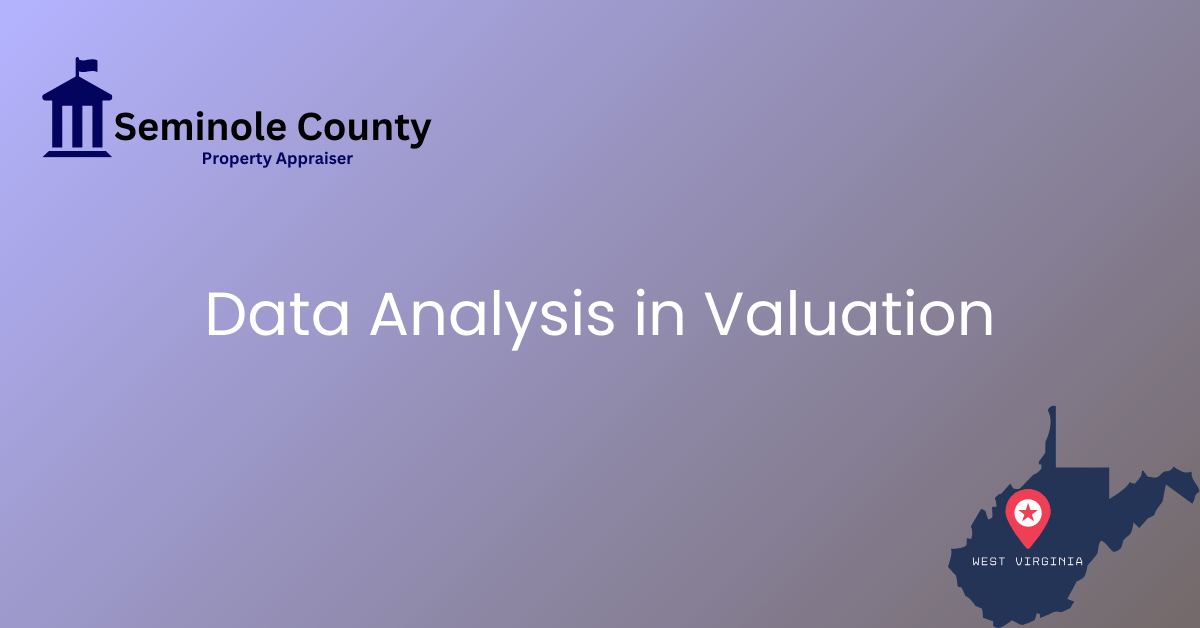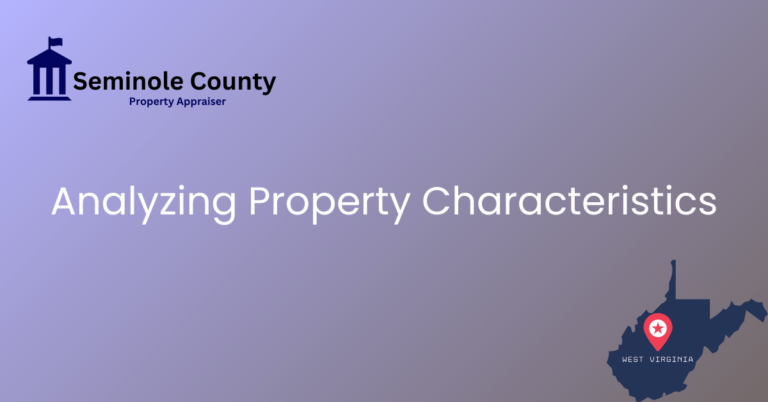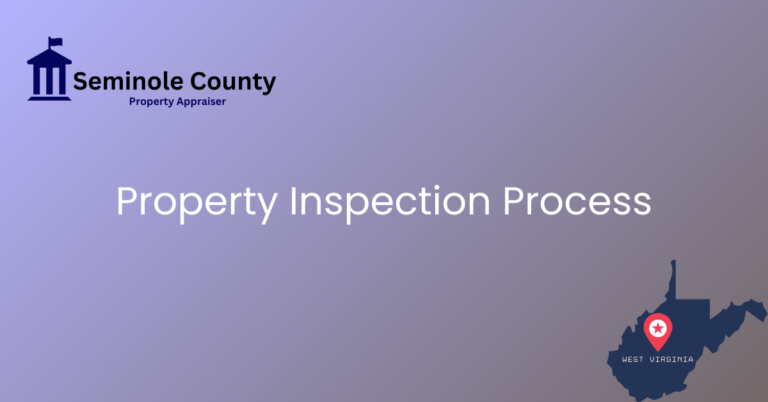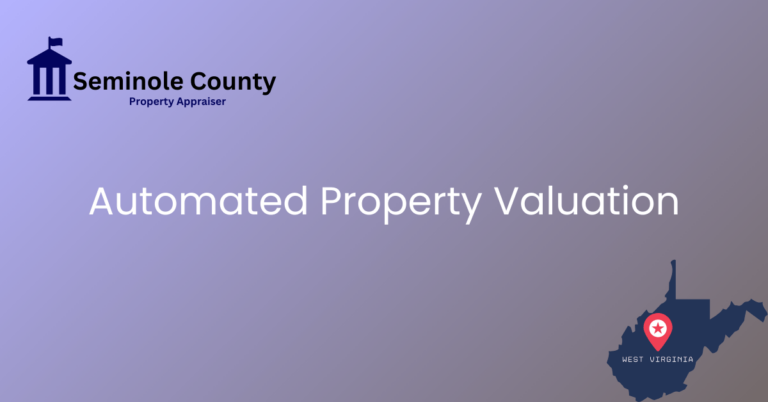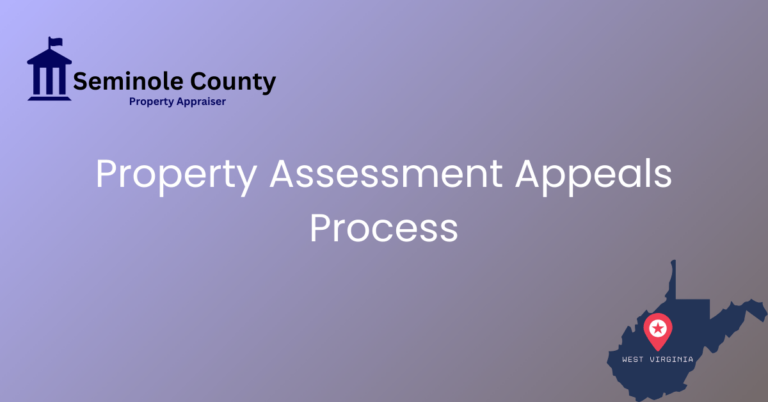Data Analysis in Valuation
Property valuation in Seminole County requires a deep understanding of data analysis techniques. By incorporating advanced methods of data analysis, the property appraiser can ensure accurate and fair assessments. Utilizing data analysis in valuation allows for a comprehensive evaluation of properties, taking into account various factors that contribute to their value.
With a focus on data analysis in valuation, the Seminole County Property Appraiser strives to provide precise and reliable property assessments. By leveraging data-driven insights, property appraisers can offer valuable information to property owners and stakeholders. The integration of data analysis in valuation processes enhances transparency and efficiency in property assessment practices.
Data Analysis Techniques for Property Valuation
Property valuation involves the use of various data analysis techniques to ensure accurate and fair assessments of properties. By leveraging statistical analysis, property appraisers can analyze data sets to identify trends and patterns that impact property values. This helps in determining the true worth of a property based on factual data rather than assumptions.
Ensuring Accurate and Fair Property Assessments
One of the key goals of data analysis in property valuation is to ensure that assessments are fair and accurate. By utilizing big data, property appraisers can access a wide range of information related to a property, including market trends, comparable sales, and demographic data. This comprehensive approach helps in providing a more balanced and unbiased valuation of properties.
Comprehensive Evaluation of Property Values
Data analysis techniques allow for a comprehensive evaluation of property values by considering multiple factors that influence pricing. Predictive modeling, for example, can help in forecasting future property values based on historical data and market trends. This in-depth analysis provides property appraisers with a holistic view of a property’s worth.
Precise and Reliable Assessment Practices
With the integration of data analysis in valuation processes, property appraisers can ensure precise and reliable assessment practices. By using advanced tools and techniques, such as regression analysis and machine learning algorithms, appraisers can offer more accurate valuations that are backed by data-driven insights. This increases the credibility and trustworthiness of property assessments.
Leveraging Data-Driven Insights for Property Owners
Property owners can benefit from data analysis in valuation by gaining valuable insights into the factors that influence their property’s value. By understanding the data behind their property assessment, owners can make informed decisions regarding improvements, renovations, or selling strategies. This empowers property owners to take control of their investments.
Enhancing Transparency and Efficiency in Assessments
The use of data analysis enhances transparency and efficiency in property assessments by providing a clear and structured approach to valuation. By documenting and analyzing data in a systematic manner, property appraisers can streamline the assessment process and reduce the potential for errors or discrepancies. This improves the overall accuracy and reliability of property valuations.
Integrating Data Analysis for Enhanced Valuation Processes
Integrating data analysis into valuation processes is essential for staying competitive in the real estate market. By embracing technology and data-driven methodologies, property appraisers can adapt to changing market conditions and evolving industry standards. This integration allows for continuous improvement in valuation practices and ensures that assessments are always based on the most up-to-date and relevant information.
Frequently Asked Questions
Find answers to common questions regarding property valuation and data analysis techniques in Seminole County.
How does data analysis impact property valuation?
Data analysis plays a crucial role in property valuation by allowing appraisers to analyze various factors that contribute to a property’s value. Through advanced data analysis techniques, appraisers can ensure accurate and fair assessments, providing valuable insights to property owners and stakeholders.
What are the benefits of incorporating data analysis in property valuation?
By leveraging data analysis in valuation processes, property appraisers can enhance transparency and efficiency in property assessment practices. Data-driven insights allow for a comprehensive evaluation of properties, leading to precise and reliable assessments that benefit both property owners and the community.
How can data analysis improve the accuracy of property assessments?
Data analysis enables property appraisers to access a wealth of information that contributes to a property’s value. By utilizing advanced data analysis methods, appraisers can identify relevant trends, market conditions, and other factors that impact property values, resulting in more accurate and informed assessments.
What role does data analysis play in ensuring fairness in property valuations?
By incorporating data analysis in valuation processes, property appraisers can mitigate biases and ensure fairness in property assessments. Data-driven insights provide an objective basis for evaluating properties, helping appraisers make informed decisions that reflect the true value of each property.
How can property owners benefit from data analysis in valuation?
Property owners can benefit from data analysis in valuation by gaining a better understanding of how their property is assessed. Data-driven insights provide transparency and clarity on the factors influencing property values, empowering owners to make informed decisions regarding their properties.

